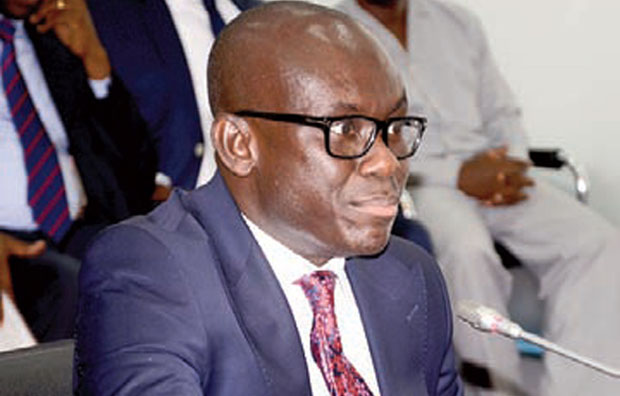Godfred Yeboah Dame
The Office of the Attorney General (AG) has filed an application contesting the decision of an Accra High Court which granted an interlocutory injunction against the Ghana Card mass registration exercise being carried out by the National Identification Authority (NIA) in the Eastern Region.
According to court documents signed by the Deputy AG, Godfred Yeboah Dame, the applicants did not satisfy the court on an essential criterion for the grant of an interlocutory injunction such as the one the court granted.
The argument of the state in seeking to revoke the interlocutory injunction is hinged on three principles as averred by the Deputy AG.
He said for the court to grant the injunction, the applicants must have some legal or equitable right that could be asserted in law as well as whether or not on the balance of convenience the applicants would suffer more harm if the order was not granted.
Besides, he averred that the court should assess whether damages would adequately compensate the applicants in the event that the dispute was resolved in his favour at the conclusion of the case.
Motion
The AG’s office has subsequently filed a motion against the decision of a High Court to grant the motion, arguing that the applicants did not by law have the right to file for the injunction as the ongoing registration did not in any way infringe on their rights.
In an affidavit in opposition to the motion for interlocutory injunction, the AG’s department insisted that the President’s directive on March 15, as part of measures to combat the coronavirus pandemic, did not restrict the NIA from continuing with the registration exercise, but rather announced a continued operation of businesses and other workplaces subject to the observance of prescribed social distancing between patrons and staff.
Mr. Dame argues that the applicants in their motion did not disclose any cause of action as they could not indicate which part of the President’s directive had been breached by the NIA.
“The entire case of applicants is hinged on either a misreading or deliberate misconstruction of the address given by the President to the people of Ghana,” he said.
The motion further argues that a human rights action instituted under Article 33 and Order 67 of the High Court (Civil Procedure) Rules cannot be used as an avenue to vindicate public rights, saying “same is filed only in respect of situations where an applicant can show a clear violation of his fundamental human right.”
In the motion, Mr. Dame also states that the court cannot issue an interlocutory injunction in the absence of clear statutory and constitutional violations, as the exercise by the NIA is a statutory function.
Again, the motion noted that the NIA had put in place measures to curtail the possible spread of the virus as all the staff members of the NIA were provided with personal protection equipment such as hand sanitizers, gloves, Veronica buckets, among others.
It further added that the Ghana Card, beyond being used as a source of identification for registration of voters exercise to be undertaken by the Electoral Commission (EC) in future, would be the only single card that would be used by all Ghanaians in proving their identity as Ghanaians.
It added that “greater inconvenience and hardship will be caused by the restraint of the statutory functions of the NIA in the circumstances.”
The motion, therefore, prayed the court to dismiss the interlocutory injunction application as well as the writ challenging the NIA to continue with the exercise.
Meanwhile, the AG has also filed a motion to abridge the time for hearing the matter from April 19 to March 26, 2020.
BY Gibril Abdul Razak


